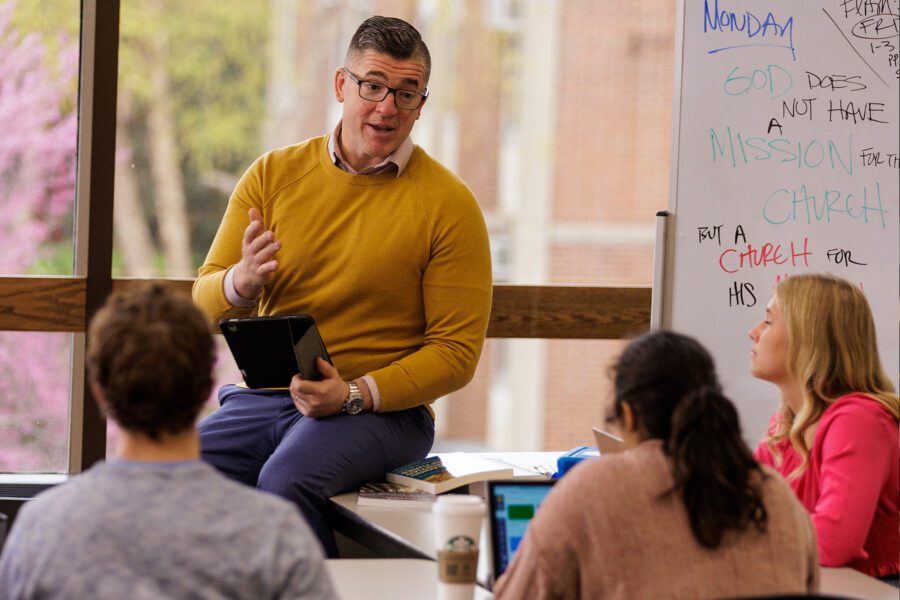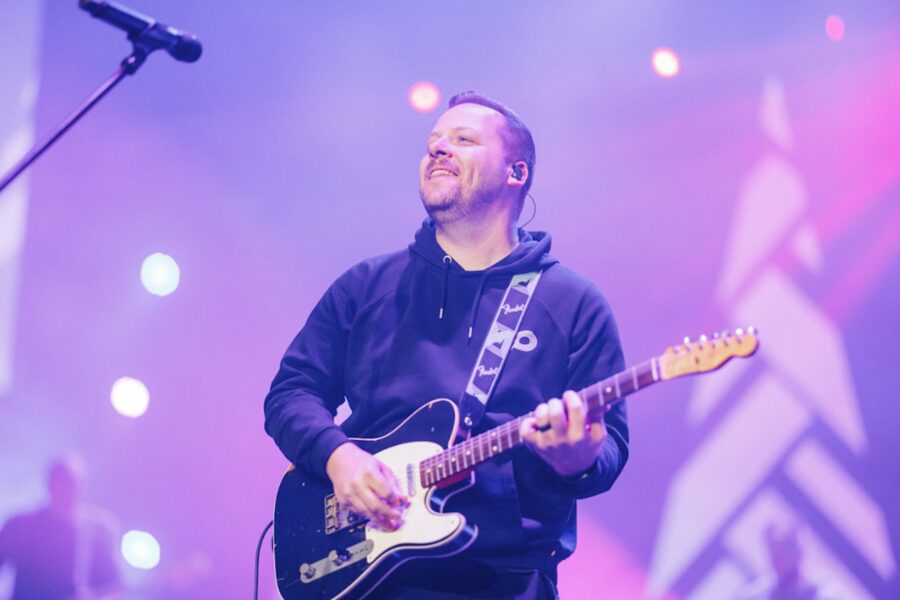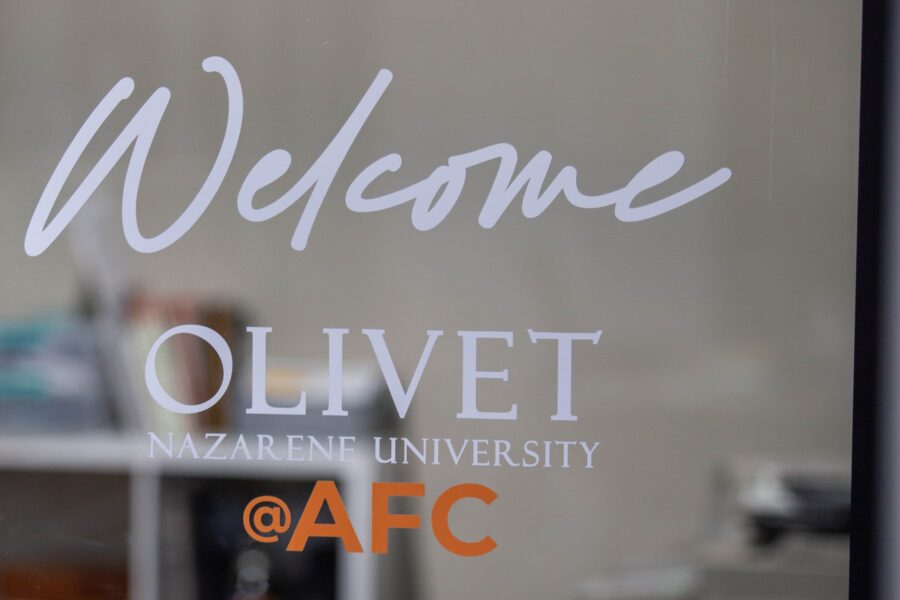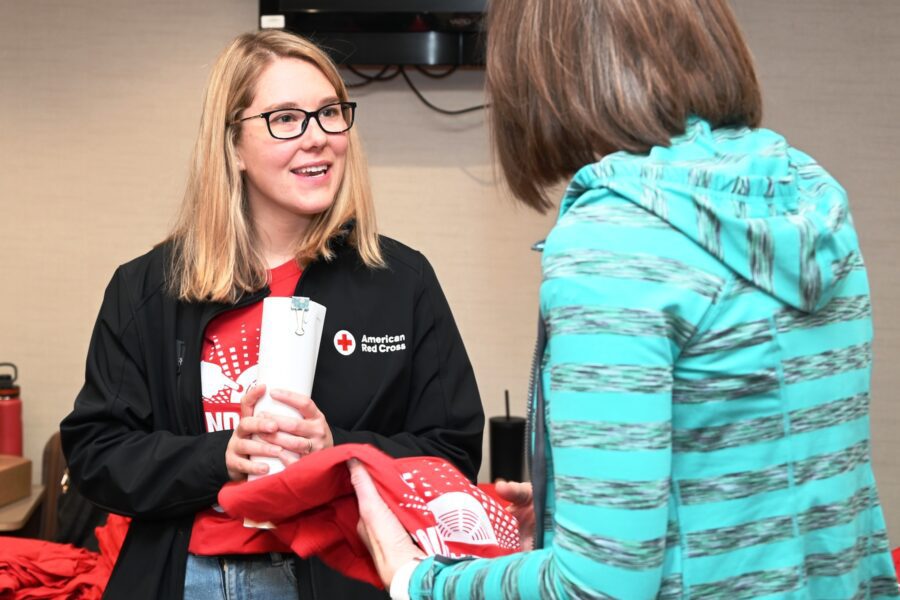
“Toward the end of my pastoral ministry at BridgeWay Community Church in Pekin, Illinois, I knew my calling for the next season of life was to support local pastors in local congregations,” says Dr. Jeffery Stark, director of graduate programming for Olivet Nazarene University’s School of Theology and Christian Ministry since 2022. “We can no longer assume a cultural Christianity in the United States. The Church has to do a better job of witnessing to the Kingdom of God in the world around us.”
Dr. Stark and his team of professors and adjunct faculty are working to forge relationships with pastors, church professionals, other Christ followers and ministry organizations all across the country. Their goal is to prepare effective leaders for ministry in a post-Christian society.
“When the Church fails to bear witness to the Kingdom of God, the rest of the world takes notice,” Dr. Stark says. “Our job is to raise up disciples of Jesus who take seriously the call to join the Jesus mission wherever they live, work and play.”
Understanding From a Personal Perspective
Dr. Stark vividly recalls how the love of Jesus radically changed his life and his marriage. In his teens and early 20s, he had no interest in faith or in the practice of Christianity.
After graduating from college, he joined the military and also got married. He describes his life as in a decline, and his marriage soon became dysfunctional.
“When I was 25 years old, I was in despair,” he recalls. “In a small chapel in Skopje, Macedonia, on the base where I was stationed, I accepted Christ as my Savior. While I was deployed, my wife went through her own radical conversion. Now, we are doing this Jesus journey together.”
Knowing the difference between living without Christ and living with Christ inspires Dr. Stark’s work and ministry every day. He often has opportunities to encourage students and faculty as they carry out the academic rigors and personal transformation through ONU’s graduate programs.
“What I want each of them to know is ‘You matter,’” he says. “‘You matter to God, to your local church, to our students, to one another.’ If they know they matter and there’s purpose behind what they are doing, they can endure and succeed.”
Leading Students Into Success
When graduate students commit to the online degree program, they are also committing to a rigorous process of rethinking ministry strategies, addressing real adaptive change issues in their congregations, learning to navigate conflict, and developing strategic plans for discipleship and mission in their local churches. Faculty members walk with them through this process and provide valuable input from their own ministry experiences. Seeing students succeed is one of the joys Dr. Stark experiences in his work at ONU. Here are two of the many success stories he has already witnessed:
- A student was navigating a cancer diagnosis, surgery and treatments during his degree program. His commitment to what God had called him to do and the work of his church never wavered. He completed the program with excellence and inspired other students along the way.
- God called another student to be a church planter, but she felt very much alone as one of only a few women called for that work. Her cohort encouraged her by speaking God’s truth to her and helping her think about how to build on the vision God had given her.
The University is committed to diversity of voice and experience among its professors and adjunct professors. They come from a variety of ministry contexts, ethnic and socioeconomic backgrounds, and even geographical locations.
“All of our faculty are regularly involved in ministry in their local congregations, and most are serving in vocational roles,” Dr. Stark says. “The courses they teach are not theory for them. They know about the real work of ministry because they are doing it. That adds real value to the education we are offering. I’m honored and humbled to be around people who are far smarter than I am and who are doing incredible work for the Lord.”
Keeping the Right Focus
Dr. Stark sees the role of today’s Church as the change agent in making communities and families better.
“We constantly remind our students that the work of the Church is not just to grow a local congregation,” he says. “We are to connect the heart of God with the world around our churches. We are to bring healing, restoration and reconciliation to the brokenness of people all around us.”
From Olivet The Magazine, On Purpose – Winter 2024. Read the full issue HERE.





